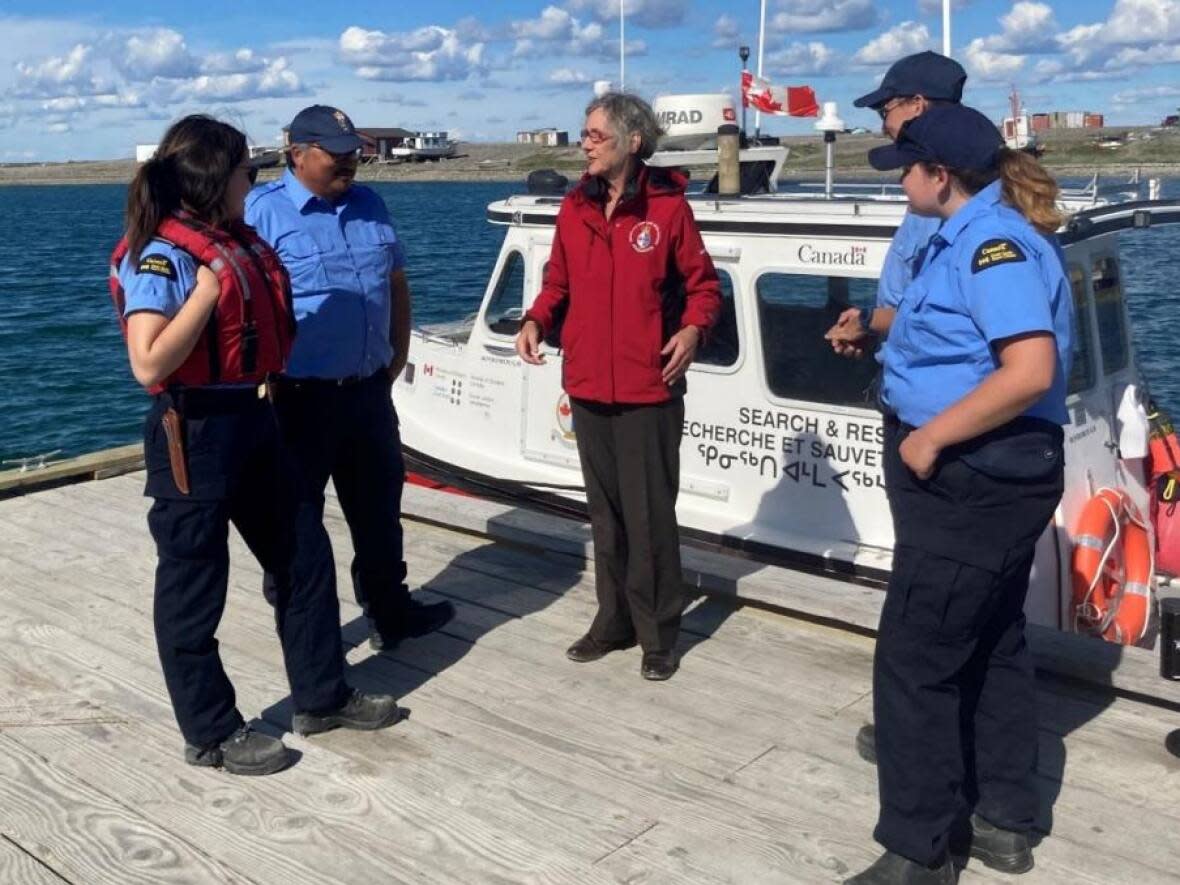Rankin Inlet Coast Guard expands into Arctic marine response station

Rankin Inlet's Canada Coast Guard station is expanding into an Arctic Marine Response Station.
The federal government says it will put up $24.7 million in funding to hire and train people in local communities, and will put an extra vessel on the ocean during the open water season.
"We will have more people from the communities that are part of our search and rescue and an enhanced search and rescue capacity over the coming years," said Minister of Fisheries and Oceans Joyce Murray.
A new search and rescue ship is coming to Rankin Inlet, and will be staffed with a crew of Rankin Inlet community members.
Murray was in the community on Wednesday to announce money for the coast guard expansion and new funding under the Oceans Protection Plan, which includes $84 million to map out the ocean floor and make Arctic navigation safer.
"We see this as being not just the increased safety of the environment and mariners, but also the building of economic opportunity and jobs for community members," said Murray.
Murray said the Department of Fisheries and Oceans plans to double the number of staff in the Arctic in just a few years time.
The Coast Guard station responds to distress calls including capsized vessels and medical emergencies.
Since the station launched four years ago, local crews have responded to multiple incidents — three in 2018, one in 2019, and six in 2020. There will be workshops and training in coastal communities, and an increase in hotel and restaurant businesses while the project is underway.

Keeping Arctic waters safe
The mapping project will make ocean travel safer, and protect Arctic waters from spills by having good quality data, said Murray.
They will use autonomous survey vessels and satellite-based remote sensing to updated nautical charts.
Climate change is warming the Arctic three times faster than the rest of the world, and that means longer seasons of ice-free oceans.
Changes to the Arctic will include "much greater vessel traffic, whether it's tourism or whether it's economic vessels coming through these very beautiful but vulnerable waters," said Murray.
She said it will be important to hire Inuit, especially to understand the impacts of vessel traffic on marine life.

 Yahoo Movies
Yahoo Movies 
